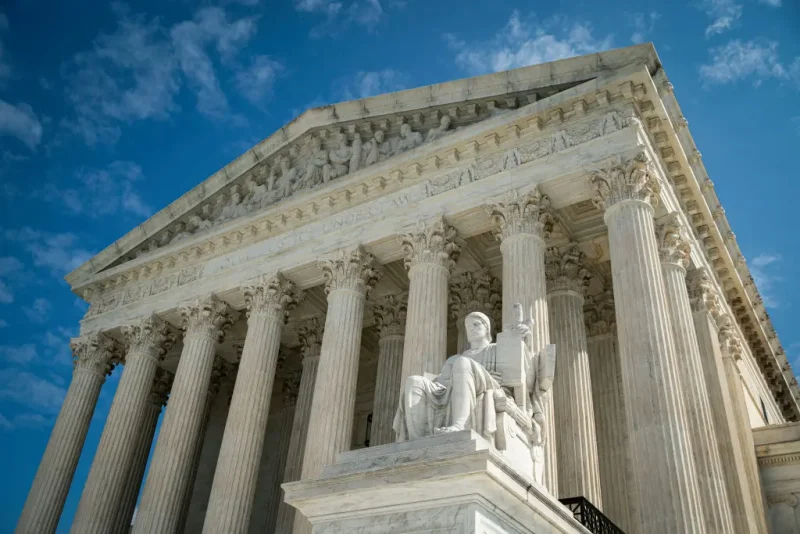
OAN Staff James Meyers
2:21 PM – Friday, May 30, 2025
The Supreme Court ruled on Friday that the Trump administration will be allowed to revoke the temporary legal status of hundreds of thousands of Venezuelan, Cuban, Haitian and Nicaraguan illegal migrants living in the United States.
The high court’s ruling will now put a pause on U.S. District Judge Indira Talwani’s order, which halted the administration’s move to end the immigration “parole” granted to over 530,000 illegal migrants by former President Joe Biden.
Two of the court’s three liberal justices, Ketanji Brown Jackson and Sonia Sotomayor, publicly dissented.
The outcome, Jackson wrote, “undervalues the devastating consequences of allowing the government to precipitously upend the lives and livelihoods of nearly half a million noncitizens while their legal claims are pending.”
Immigration “parole” allows migrants to be in the U.S. for “urgent humanitarian reasons or significant public benefit,” allowing recipients to live and work in the United States.
The president called for ending humanitarian parole programs in an executive order after his first day back in office.
The Department of Homeland Security (DHS) then moved to terminate them in March, cutting the two-year parole grants. The administration’s reasoning was that parole status would make it easier to place illegal migrants in an “expedited removal.”
On May 19th, the SCOTUS also allowed Trump to end a deportation protection status that was granted under the Biden administration to almost 350,000 Venezuelans living in the U.S.
In 2022, Biden started allowing Venezuelans who came into the U.S. by airplane to request a two-year “parole” if they passed required security checks and had a U.S. financial sponsor. The former president then doubled down in 2023, expanding it to Nicaraguans, Haitians and Cubans.
The plaintiffs on the latest case, which were a group of migrants granted parole, sued Trump administration officials stating that the administration violated federal law by governing the actions of certain government agencies.
However, in the current Justice Department’s filing (DOJ), they told the Supreme Court that Talwani’s order had destroyed “critical immigration policies that are carefully calibrated to deter illegal entry,” effectively “undoing democratically approved policies that featured heavily in the November election” that helped Trump become president again.
Still, the plaintiffs stated to the high court that they will face harm if their “parole” is terminated.
Stay informed! Receive breaking news alerts directly to your inbox for free. Subscribe here. https://www.oann.com/alerts
What do YOU think? Click here to jump to the comments!
Sponsored Content Below

